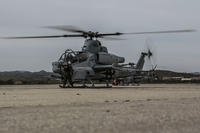The U.S. military will not change operations in Syria or participate with air drops in the delivery of humanitarian aid to the Aleppo region of Syria as a result of the potential ceasefire declared by world powers, the Pentagon said Friday.
"There are no immediate plans for the U.S. to be part of this effort," Navy Capt. Jeff Davis, a Pentagon spokesman said of aid for Aleppo. Secretary of State John Kerry said Thursday that aid convoys by the United Nations World Food Program and other groups were expected to begin "immediately."
Davis said the U.S. military's efforts in Syria were focused on the Islamic State of Iraq and Syria, which does not operate near Aleppo, and U.S. airstrikes would continue despite the temporary ceasefire agreement. "We are there strictly to fight ISIL," Davis said, using another acronym for ISIS.
The U.S. will continue to strike at ISIS in Syria but in and around Aleppo "there is very little fire for us to cease," Davis said. He said the U.S. did not conduct airstrikes in Syria against ISIS on Thursday, when the U.S., Russia and other powers meeting in Europe negotiated a ceasefire proposal, but added that the lull was a "coincidence."
At the start of the International Syria Support Group talks in Munich that were to continue this weekend, Secretary of State Kerry said that the Russians, the European Union and others were "unanimous" in agreeing that a temporary ceasefire in Syria should begin next week. "What we need to see in the next few days are actions on the ground," Kerry said.
Russian Foreign Minister Sergei Lavrov said that most Russian airstrikes would probably stop next Friday but "terrorist" groups such as ISIS and the Al Qaeda-affiliated Al Nusra Front would continue to be hit. Whether other rebel groups, some of them supported by the U.S., would go along with the ceasefire was unclear.
The International Syria Support Group includes the Arab League, the European Union, the United Nations, and 17 countries, including the United States and Russia.
Stefan de Mistura, the UN Special Envoy for Syria, said aid convoys to besieged areas could begin as early as Saturday. "Once we get clearance by concerned parties, the UN and its humanitarian partners will be able to reach the civilians in need within the coming days," de Mistura said.
NATO Secretary General Jens Stoltenberg cautioned that "ceasefires are not always respected." Shortly after Stoltenberg gave the warning, Syrian President Bashar al-Assad said he was still committed to taking back territory in rebel hands.
In an interview with Agency France Presse in Damascus, Assad said he intended to restore territory controlled by the government to the original borders and "this is a goal we are seeking to achieve without any hesitation. It makes no sense for us to say that we will give up any part.'
At the Pentagon, Davis said the only contacts the U.S. military had with their Russian counterparts involved the "deconfliction" of the separate air campaigns in Syria.
However, there appeared to be a form of conflict in what Davis called the "Twitter wars" between the Russian Defense Ministry and Army Col. Steve Warren, the spokesman for Combined Joint Task Force-Operation Inherent Resolve for Iraq and Syria.
In his must-see video briefings to the Pentagon, in e-mails, and on Twitter, Warren has called out the Russians for their indiscriminate bombing campaign in support of the Assad regime that has led to the humanitarian crisis in Aleppo.
The Russians shot back by Tweet: "Col. Warren is to be disappointed--Rus aircraft didn't work near #ALEPPO yesterday. Nearest target was more than 20 km far from city."
In his counter-Tweet, Warren said "Russia's tweets are wrong. Furthermore their bombing is reckless and indiscriminate and their efforts are strategically short-sighted."
-- Richard Sisk can be reached at richard.sisk@military.com




























